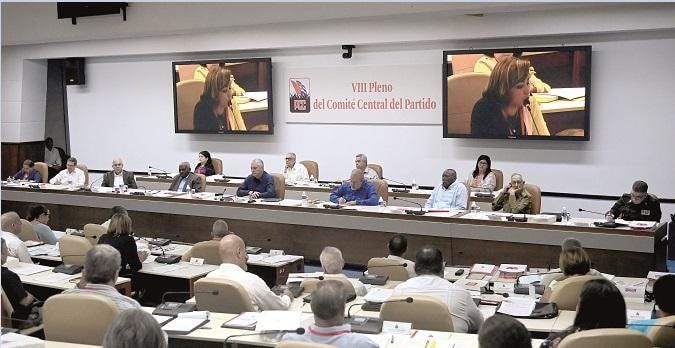The Party assesses problems in Cuba
The vanguard leads the people toward continued socialist construction
In the midst of the challenges provoked by the crisis of the Cuban economy and the sustained structural crisis of the capitalist world-economy, the Central Committee of the Communist Party of Cuba (CC-PCC for its initials in Spanish) held its eighth plenary on July 5-6, 2024. It identified key areas of improvement in the work of the Party and the Revolution, namely, increasing national production of food; the elevation of sugar production; the stabilization of currency exchange; the strengthening at the local level of the Committees for the Defense of the Revolution and the Federation of Cuban Women; the ideological formation of youth; and the elimination and prevention of criminal and anti-social behavior.

§
On the first day of the Plenary, the Secretary of Organization of the CC-PCC, Robert…


